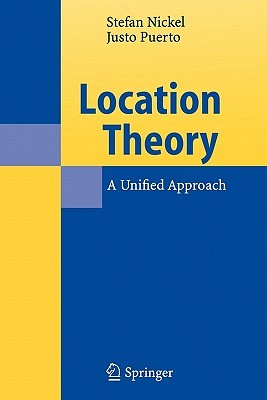
- We will send in 10–14 business days.
- Author: Stefan Nickel
- Publisher: Springer
- ISBN-10: 3642063578
- ISBN-13: 9783642063572
- Format: 15.6 x 23.4 x 2.4 cm, minkšti viršeliai
- Language: English
- SAVE -10% with code: EXTRA
Reviews
Description
Although modern location theory is now more than 90 years old, the focus of researchers in this area has been mainly problem oriented. However, a common theory, which keeps the essential characteristics of classical location models, is still missing.
This monograph addresses this issue. A flexible location problem called the Ordered Median Problem (OMP) is introduced. For all three main subareas of location theory (continuous, network and discrete location) structural properties of the OMP are presented and solution approaches provided. Numerous illustrations and examples help the reader to become familiar with this new location model.
By using OMP classical results of location theory can be reproved in a more general and sometimes even simpler way. Algorithms enable the reader to solve very flexible location models with a single implementation. In addition, the code of some algorithms is available for download.
EXTRA 10 % discount with code: EXTRA
The promotion ends in 22d.10:25:10
The discount code is valid when purchasing from 10 €. Discounts do not stack.
- Author: Stefan Nickel
- Publisher: Springer
- ISBN-10: 3642063578
- ISBN-13: 9783642063572
- Format: 15.6 x 23.4 x 2.4 cm, minkšti viršeliai
- Language: English English
Although modern location theory is now more than 90 years old, the focus of researchers in this area has been mainly problem oriented. However, a common theory, which keeps the essential characteristics of classical location models, is still missing.
This monograph addresses this issue. A flexible location problem called the Ordered Median Problem (OMP) is introduced. For all three main subareas of location theory (continuous, network and discrete location) structural properties of the OMP are presented and solution approaches provided. Numerous illustrations and examples help the reader to become familiar with this new location model.
By using OMP classical results of location theory can be reproved in a more general and sometimes even simpler way. Algorithms enable the reader to solve very flexible location models with a single implementation. In addition, the code of some algorithms is available for download.


Reviews